In a society all too often blighted by disposable culture, there are many reasons why people are choosing to repair household items and clothing instead of buying new.
It’s good for the wallet, better for the environment and may allow items with sentimental value to enjoy an extended life.
But for volunteers and their ‘customers’ who visit Pitlochry Repair Cafe at the Moulin Hall every month, it’s also fostering community spirit, tackling loneliness and helping those doing the repairs develop and share their skills.
What items can be brought to Pitlochry Repair Cafe for fixing?
Pitlochry Repair Cafe is a community-based initiative that encourages sustainable living by offering a space where people can bring their broken or damaged items to be fixed by skilled volunteers.
The idea is to promote repair over disposal, reducing waste and fostering a culture of sustainability and resourcefulness.
Participants can bring a wide range of items, such as household appliances, electronics, clothing, bicycles, and furniture, to be repaired at no charge or for a small donation.
The repair cafe not only helps extend the life of items but also aims to build community connections and share repair skills.
What inspired co-ordinator Julia Harriman to found Pitlochry Repair Cafe?
Julia Harriman, 48, co-ordinator and founder of Pitlochry Repair Cafe, grew up in Pitlochry.
At 18, the former pupil of Pitlochry High School and Breadalbane Academy, went to Glasgow University to study English and theatre.
After graduating, she taught English in Sri Lanka and Spain then moved to London where she worked for 10 years in the charity sector charities and for Enfield Council arts department.
This was followed by a spell in Guatemala where she set up a social enterprise called La Choza Chula.
It empowered communities to build a secondary school, a library and helped local people do eco-tourism.
After two years back in Glasgow, the mother of a now-eight-year-old girl returned to Pitlochry in 2020.
It was while contracted to create and distribute surveys for the Pitlochry Community Action Plan that the idea for a repair cafe came about and she felt it was something that she could make happen herself.
After a provisional meeting and call out for volunteers in September 2022, the first session was held the following month. Since then, they’ve held 15 sessions.
Boosted by Enchanted Forest Community Fund
Welcoming the recent receipt of £3,675 from the Enchanted Forest Community Fund, which will cover costs of eight sessions, she explained how the project tapped in to a wider “green movement” in Pitlochry that embraces the concept of reduce, recycle and repair.
“We’ve currently got 28 regular volunteers and a bank of 46 volunteers,” she explained.
“They have lots of specialist skills including sewing. We have odd job men, a ceramics repairer, bike repairer, electronics team, a wood worker, someone that repairs clocks and jewellery. Most things that people bring in, someone can look at.
“Anything from ceramic dolls to bikes, to textiles. Lots of holes under the arm or ripped jeans. Fleeces with holes. I brought in a tent. Toys. Lots of sentimental ceramic things that have smashed. Basically anything!”
What’s the success rate for items fixed by Pitlochry Repair Cafe?
Last year they ran nine repair cafes. Of 281 items brought in, 200 of them were repaired during the sessions and 48 items were fixed by volunteers at home. The items most likely not to be fixable tend to be electrical.
The most unusual items brought in for repair recently include a garden angel sculpture with its head off.
Renowned for its inclusive culture and fine baking, those who attend from the 180-strong mailing list tend to be a mix of people with young kids attracted by the play area who come in for a cup of tea, and older people looking to socialise in the face of loneliness.
Julia set the project up with an environmental mindset.
Her advice to anyone buying anything new is ‘do I really need this?’ and ‘what’s going to happen to it when it’s finished with?’
But she also gets great satisfaction from seeing people from across the generations sharing and enjoying spending time together. This includes widowed volunteers who used to have important jobs, and who now feel “useful” again.
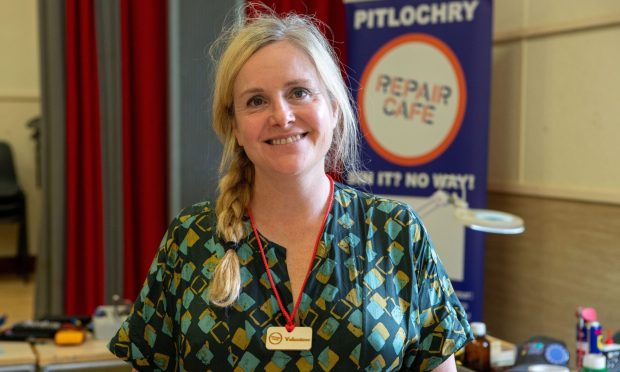
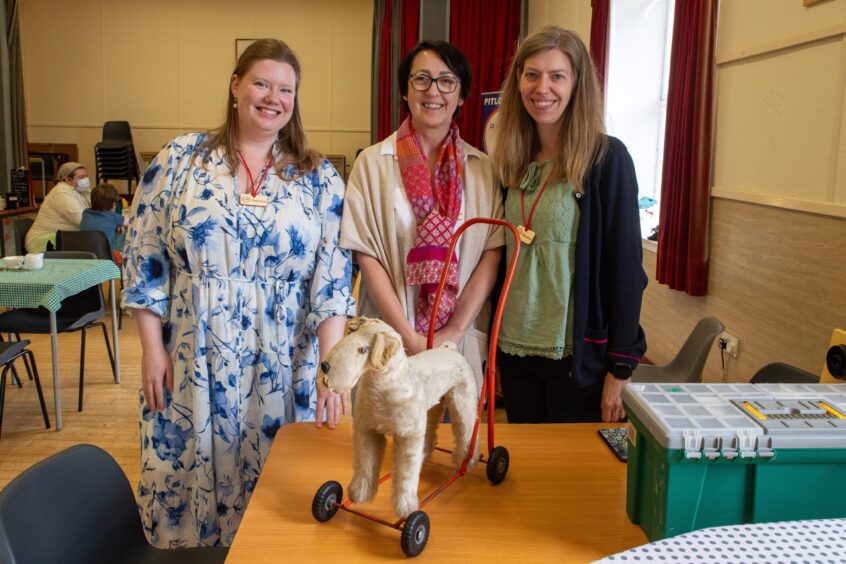
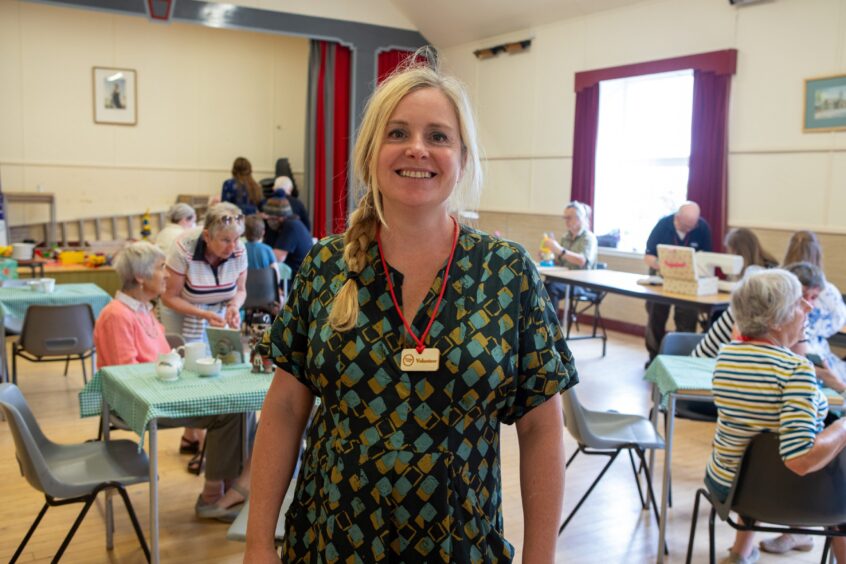
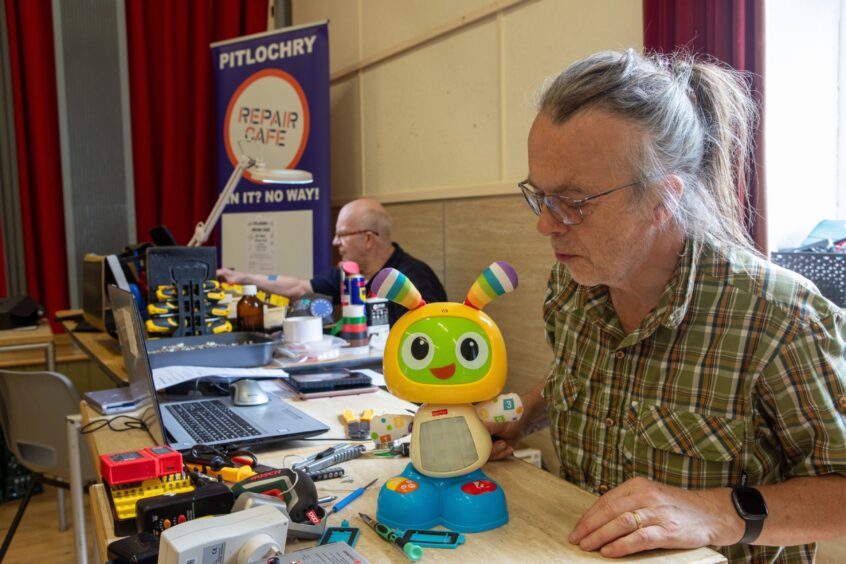
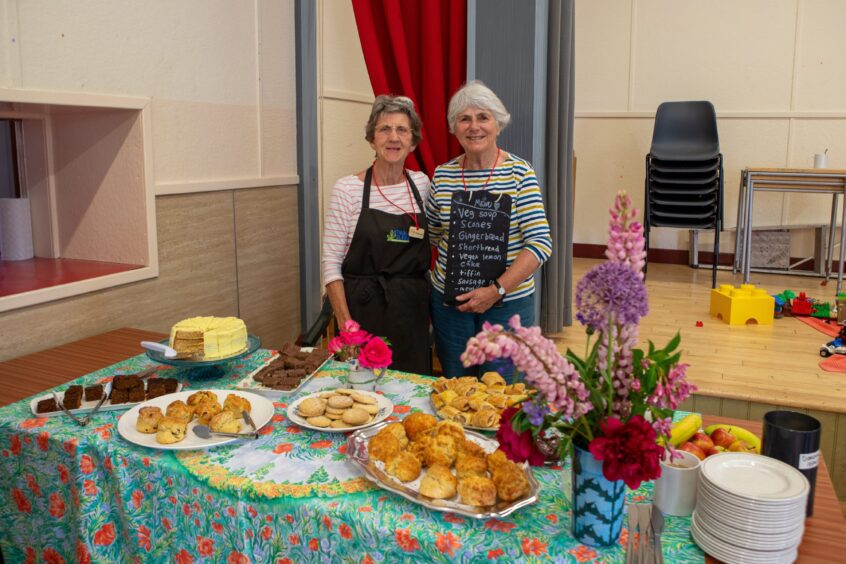









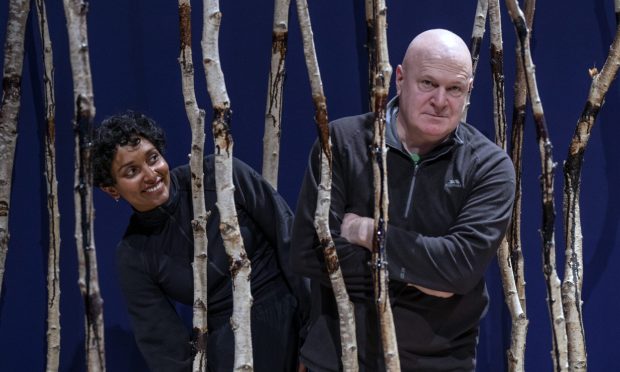
Conversation